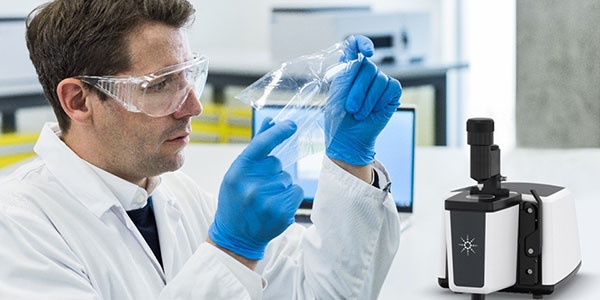
Lithium-ion batteries (LIBs) have emerged as indispensable power sources in a range of applications. With the steep rise of LIB production (and recycling) comes the need for rigorous quality testing of the components used in these batteries.
The Agilent Cary 630 FTIR spectrometer has been demonstrated to be valuable tool for the quality control of salts and solvents used in LIB electrolytes.
Another crucial component in the assembly of LIBs is the separator—a thin, porous membrane that physically separates the anode and cathode—which plays a pivotal role in battery safety and performance.
A fast and easy test solution to confirm the identity of separator films and to check the separators' quality is key to ensuring only correct polymers and no out-of-spec materials are used/shipped.
The Cary 630 FTIR instrument was employed to assess both a fresh, unused lithium-ion battery separator and an aged, previously used one. This fit-for-purpose system identified the two separator samples as polypropylene and polyethylene, while also enabling an examination of potential contaminants from other components within the used separator. Automatic color-coding of the results in the Agilent MicroLab Software turns the Cary 630 FTIR system into an easy-to-use, turnkey solution that enables quick decision-making.
